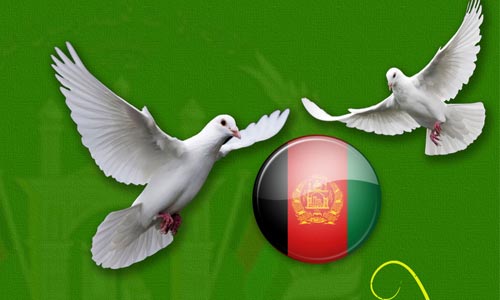The progress of Afghan peace process in Qatar has caused some optimisms and also some pessimisms in internal atmosphere of Afghanistan. The optimism is expressed due to the point that mutually Taliban and U.S negotiators have reached unprecedented steps of agreement to end the long senseless war in the country, but the pessimisms are expressed due to lack of attention about preserving the national interests and democratic political achievements of Afghanistan. Seemingly, the main agenda of the talks were not focused on the issues which are important for the people of Afghanistan and neither the representatives of Afghanistan were present during the talks. However, Khalilzad indirectly said that nothing was agreed during the talks.“Nothing is agreed until everything is agreed, and “everything” must include an intra-Afghan dialogue and comprehensive ceasefire,” he said in a tweet. He added that “we have a number of issues left to work out”.
In addition, Khalilzad, left Doha on Saturday to visit Kabul for “consultations”. Earlier in the day, a spokesperson for President Ashraf Ghani acknowledged that the reported agreements which sources say have been reached between US and Taliban officials in the past six days in Doha, Qatar, have not been shared with the Afghan government. However, “Mr. (Zalmay Khalilzad) will share it with the Afghan government when agreements are finalized in Doha. We hope it will bring us closer (to peace talks) and we hope that we will witness peace talks,” said Fraidoon Khozoon, Ghani’s deputy spokesman. Sources familiar with the Doha talks said that on the fifth day of the US-Taliban discussions in Qatar on Friday, US officials agreed to a troop withdrawal from Afghanistan. The sources also said that Taliban has agreed not to let al Qaida and Daesh operate in Afghanistan.
According to media news, the US officials have asked for a ceasefire, but Taliban has demanded a timeline to be drawn up for the withdrawal of US forces from Afghanistan before agreeing to this. Taliban says they first want to be assured by the US that there will be no threat to regional countries especially Pakistan and then a ceasefire will take place. According to Sayed Akbar Agha, a former member of Talban, Taliban is saying that a ceasefire should be done separately which means a ceasefire with foreigners to stop their bombardments and a ceasefire with the Afghan government; this will be agreed on in a meeting (with Afghan government) and this is a different matter,” said Sayed Akbar Agha.
Meanwhile, Voice of America (VOA) reported that the United States and the Taliban have likely reached an agreement for withdrawal of American forces from Afghanistan and in return, the insurgent group has given assurances that no international terrorist groups would be allowed to use Afghan soil to threaten America or any other country in future, The plan would require the Taliban to observe a ceasefire. However, both the withdrawal and the cease-fire will be “limited and conditional”, according to VOA.
While no formal statement issued to show the total outcome of the meetings. As quoted from Asad Wahidi, a Kabul University professor who was closely monitored the Doha talks was published saying that no such an agreement had reached in the Qatar talks which could be officially announced. He said though some points were agreed upon, yet it would be too early to announce them as both the sides currently share the result of their talks with their respective leadership and there would be one announcement that the talks would continue in future.
The other factor which created optimism is the appointment of Mullah Baradar as the head of Talilban peace negotiators. Heretofore, it was said that the Taliban representatives in Qatar did not have enough authority to talk about key issues and they had to consult with their Quetta headquarter about everything. Moreover, the Taliban has repeatedly rejected the Afghan government’s offer of holding talks, preferring instead to talk directly to the U.S. side, which it regards as its main enemy; while Mullah Baradar was the one who had showed interests in talks with Afghan government part. Thus, it is said that the Mullah Bradar has more authority and more influence on Taliban and expectably can play an effective role in peace process. Taliban also preferred their side to be led by new political chief Mullah Abdul Ghani Baradar, the movement’s co-founder and a former military commander who was released from prison in Pakistan.
Bye and large, the Taliban are more propounded to be the winner of the Talks comparing to the Afghan government; currently they control nearly half of the country and are widely seen as being more powerful than at any point since the beginning of the US invasion to topple them. Despite the ongoing peace talks, the group has continued carrying out nearly daily attacks against Afghan government and its security forces. Last Tuesday, Taliban militants carried out a complex attack on a military base east of Kabul in which dozens of Afghan soldiers were killed. Last week, President Ghani confessed that 45,000 members of the country’s security forces had been killed since he took office in the fall of 2014. Apparently, The US is also ready to give more advantages to Taliban; President Donald Trump has expressed eagerness to bring home his troops, and was reported to be considering a halving of the remaining 14,000 US forces still in Afghanistan.
Home » Opinion » Pessimisms and Optimisms about Progress of Peace Process
Pessimisms and Optimisms about Progress of Peace Process
| Mohammad Zahir Akbari

